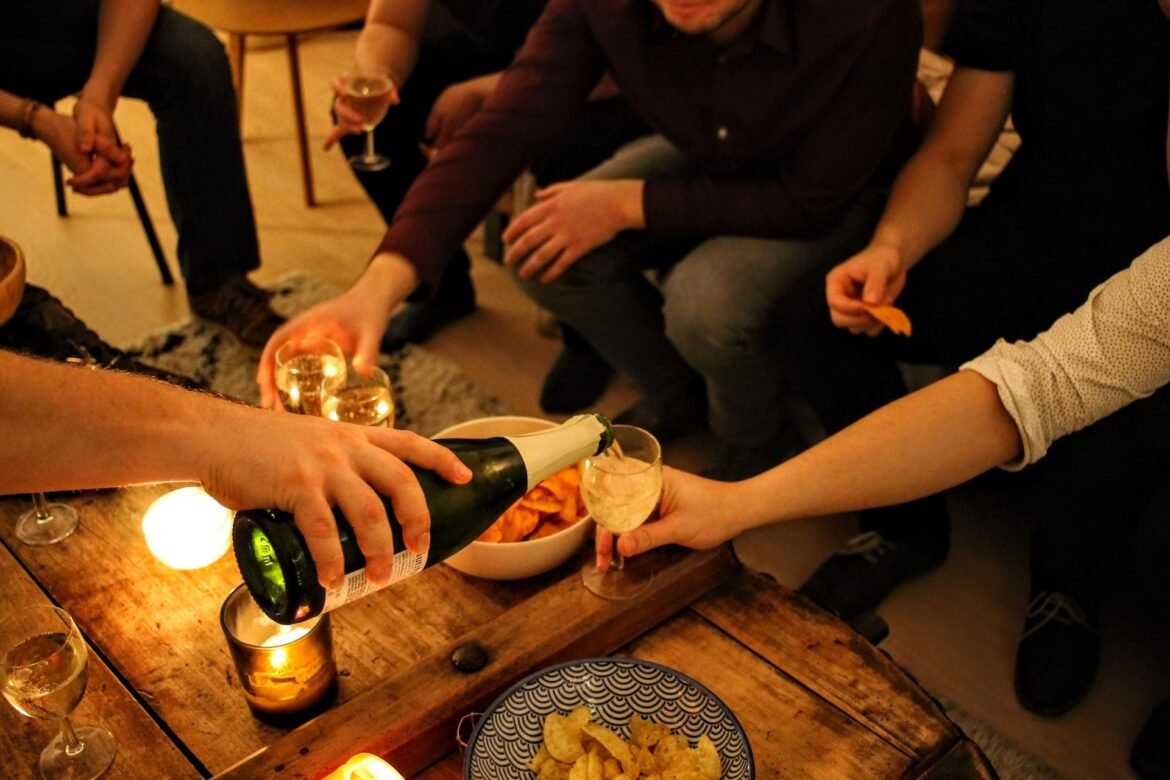

I come from a big family — like, 30-people-passing-rolls-around-the-table big. When newcomers arrive, one of us will give them the rundown in the same way a “previously on” recap would catch up an audience to the present storyline. “Nine of us were born within a seven-year period,” they’d hear. “Lola and Papa eloped, because she was Filipina and he was Irish,” they might take in as another fun fact. “And that’s Kelly, she has cerebral palsy, it’s fine.”
That last line is just my imagination, because I’m not exactly sure how my loved ones describe me to outsiders. But I do see these guests observe as my cousins, siblings, parents, or whomever is nearest to me on the buffet line grab my plate and take my order before serving themselves. Over the years, if someone survives that “My Big Fat Greek Wedding” introduction — although I’m Jamaican, Irish, and Filipina, to be clear — then they may just end up doing the honors themselves one day.
Holding my plate of food, filling my drink, offering me an arm to balance on, or giving up a seat on the coveted couch so I can rest are just some of the many ways my family accommodates my disability. During the holidays, they pull my gifts from under the tree and clear scraps of wrapping paper from my path. To me, this is proof of small yet steady love, a mostly silent yet entirely impactful choice they make, so I feel comfortable on days when we all deserve warm memories. This isn’t the case for everyone with disabilities, and I know how lucky I am.
Maybe what newcomers to allyship need is a list of helpful tips for making a disabled guest feel welcome. So, I asked five fellow advocates to share their thoughts…
“You can absolutely ask if it looks like we might need help with something. The rule of thumb should be to politely and casually offer your assistance rather than assuming we always need it. Some days I might need a hand with a heavy door, but other days I won’t. Maybe I’ll even want to hold the door open for you! Also, try not to make assumptions in conversation. Work is often a topic of small talk, although I wish it weren’t. I currently work, but I’ve felt alienated in the past when I wasn’t working because of my disability and everyone else was talking about their jobs. It’s great (for all party guests!) when conversations aren’t focused on very singular ideas of social success. That being said, if you’re in the practice of asking people about work, don’t go out of your way to not ask a disabled guest the same question. It’s hard to be singled out, so if you genuinely want to know if everyone in the room is working, or dating, or so on, then we should be part of that awkward social pressure, just like everyone else.” — Fin Leary
“Evaluate the parking situation of your holiday party. If it’s first-come, first-served, then consider reserving an up-close parking spot for your disabled guest so they don’t need to travel too far. Now for inside: I love pets and decorations, but they can make me fall, throw me off balance, or render it impossible for me to get into a certain room. Consider putting pets in a separate space until your disabled guest is settled, and make sure pathways and railings remain clear.” — Chelsea Bear
“When you send the invitation, explicitly ask your guest about any accessibility requirements: sensory, dietary, physical, and so on. And if you’re not sure whether or not to invite someone because of their disability, invite them and let them decide.” — Emily Ladau
“This might seem silly, but a lot of the respect that we give people is based on how they meet us at eye level. If you know that a wheelchair user is coming to dinner, make sure the table has room for them to slide their wheels under and that everyone is seated around the same height.” — Angel Powell
“The vast majority of homes I visit are not put together with a wheelchair in mind, which means when I’m a guest, I’m usually experiencing a series of small and large tensions with my environment. From front porch steps to an inaccessible bathroom to a kitchen where everything’s out of reach, other people’s homes often make me feel anxious and out of place. So, sending a simple text — like ‘What can I do to make my home easier for you to navigate?’ — makes me feel so seen. I love when a friend texts me photos of the steps into the house or the layout of the bathroom. And if everyone’s helping out in the kitchen, I feel so much more included when someone hands me a cutting board, knife, and pile of carrots. I want to help, too!” — Rebekah Taussig
Of course, no disabled person expects a non-disabled peer to know exactly and immediately how to navigate their experiences — that would be like knowing all the ins-and-outs of a family as soon as you shake hands. Learning the ropes takes time. But if you make the effort, you’ll make your disabled guest feel like they’re eating the best bite of dessert.
Kelly Dawson is a writer, editor, and marketing consultant based in Los Angeles. She’s written for Cup of Jo about navigating New York City with a disability, disabled motherhood, and a Virginia house tour with the cutest dog. Follow Kelly on Instagram, if you’d like.
P.S. How to navigate encounters with disability, and what autism feels like.
(Photo by Dorien Monnens on Unsplash.)

